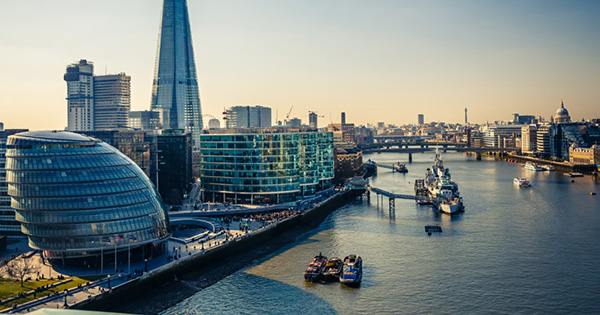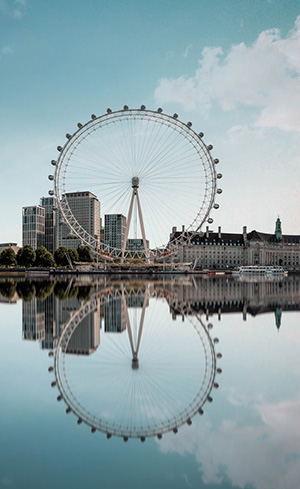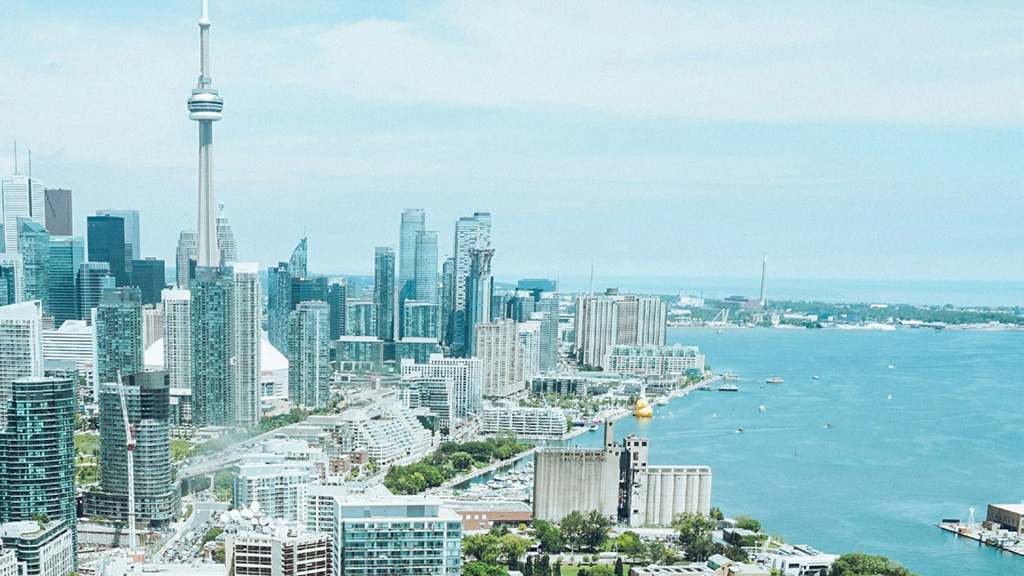Renowned urbanist Richard Florida says decision-makers must get on with the job of developing great, fun, attractive spaces on Toronto’s waterfront with urgency or else the city will continue to lag behind rising global competitors.
A new paper from Florida published last month by the Creative Class Group and titled Great Waterfront/Great City: The Waterfront and Toronto’s Future suggests developing a successful waterfront is a catalyst to economic growth and a great way of life for its citizens and visitors.
Florida, a distinguished scholar-in-residence at the School of Cities, University of Toronto, writes if we keep doing what we’ve been doing, if we settle for “lovely parks and mixed-use neighbourhoods,” Toronto will remain just a very good, but boring and uncompetitive, city.
Torontonians can’t settle for that, Florida said.
“Toronto stands at a critical inflection point,” Florida said. “With so much space available for development and redevelopment, its waterfront, a virtual city-within-the-city, can provide a crucial platform for Toronto’s future growth.
“If we muster the ambition and capital to build world-class destinations and attractions as well, Toronto can be spectacularly great.”
A good place to work, but…
Toronto ranks high, similar to German cities, as a good place to work, Florida writes, but he adds the basis of competition is no longer just attracting talented workers, it now turns on the ability to attract visitors as well.
A city must be a great place to have fun as well as a great place to live and work, he said.
“Successful urban waterfronts thrive on a diversity of activities and uses. Their basic operating principle is not ‘either/or’ but ‘and.’ They have great parks and iconic buildings. They have mixed-use neighbourhoods with much-needed affordable housing and sports stadiums, museums, art galleries, music venues and academic complexes,” said Florida.
Investments in varied attractions do not merely draw people to the waterfront but encourage important business connections.
“That’s what happens in New York and London and now happens in Miami and Dubai and Singapore,” said Florida. “We’ve fallen desperately behind.”
A benchmarking analysis conducted by Waterfront Toronto that compared Toronto’s waterfront to those of 10 other global waterfront cities found Toronto lacking across six key dimensions: character and identity; art and entertainment; marine activity; innovation and sustainability; parks and public space; and community and equity.
Toronto was dead last
Scored on all six dimensions, Toronto came in dead last — well behind rising cities like Stockholm, Copenhagen and Amsterdam.
In another study published by Florida and two colleagues in the Harvard Business Review, the scholars assessed the world’s Meta Cities based on their centrality to global flows of talent.
New York and London are the world’s superstars but Toronto was in a third tier — Dubai, Bengaluru, Dublin, Paris, Singapore, Los Angeles and Berlin all placed a tier higher.

“I teach undergraduates in the commerce program, a lot of those kids want to leave,” said Florida. “And it’s not just New York and London, they’re saying, maybe I’ll consider Dubai.”
Among several reasons Florida decided to produce the report, he said, was the debate surrounding the future of Ontario Place last year, where a citizens group and many on social media engaged in a “shrill” campaign, he said, against the planners and private firms like Therme that planned to invest hundreds of millions in new attractions.

“I know the folks at Diamond Schmitt and I know there are people who care deeply about this city,” Florida said, referring to the Toronto architectural firm that is involved in the redesign of Ontario Place. “To hear them pilloried for participating in developing the waterpark…I just thought that was horrific.
“And I decided that I should do something on the waterfront to help clear the air.”
Therme contributed financially to support the report, but Florida said he was given complete editorial independence.
“There was no way I could have done this study without financial support, and it’s not like Toronto is rife with philanthropies that are willing to support this kind of work,” he said.
Florida said he has seen a significant shift in that debate since last year with the business community, Premier Doug Ford and young people wanting Toronto to take a leap forward in the wake of the post-pandemic re-evaluation of land uses.
Toronto is behind other major cities, having been preoccupied by major projects such as rerouting the Don River, but “we didn’t screw it up,” Florida said of the waterfront’s potential.
“Enough of this complaining and enough of this naysaying. We just need to get on with building a great city.”
Follow the author on X/Twitter @DonWall_DCN.




Sadly, as his op ed piece in the Globe shows, Florida is promoting a business agenda. Disappointing.